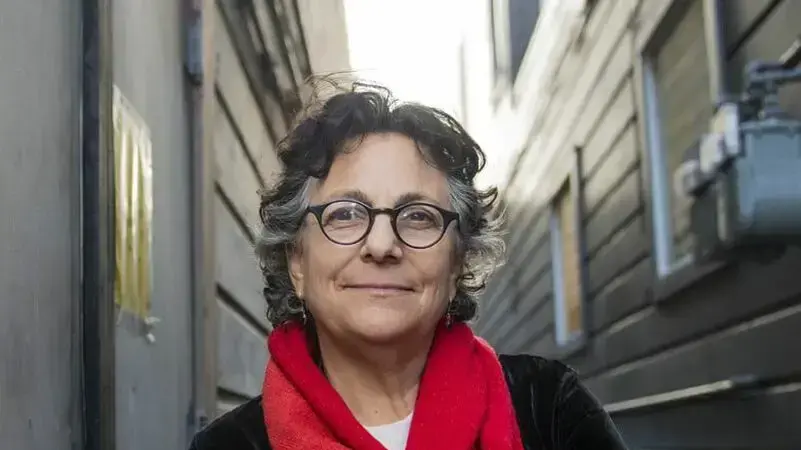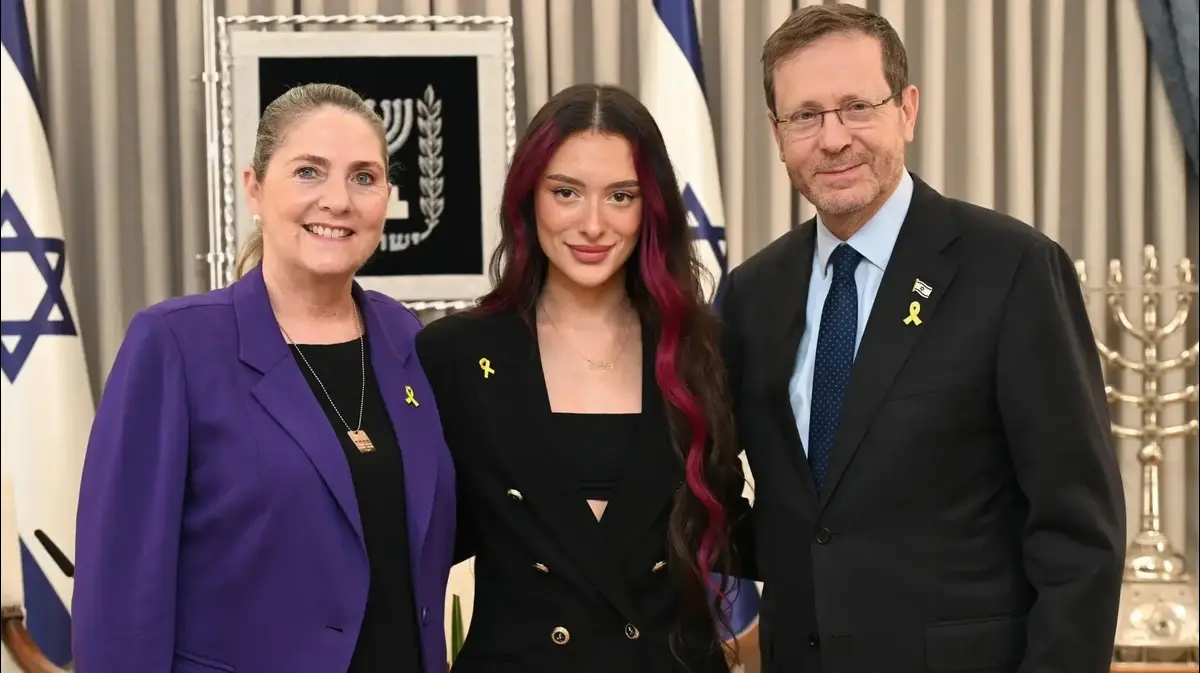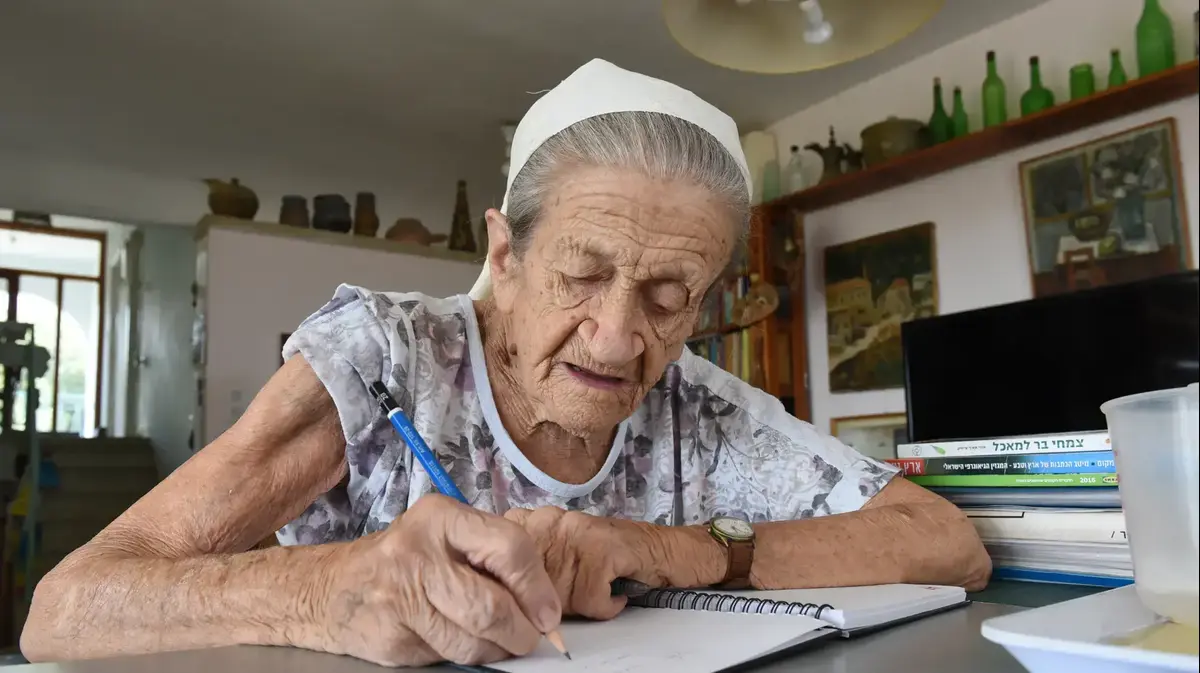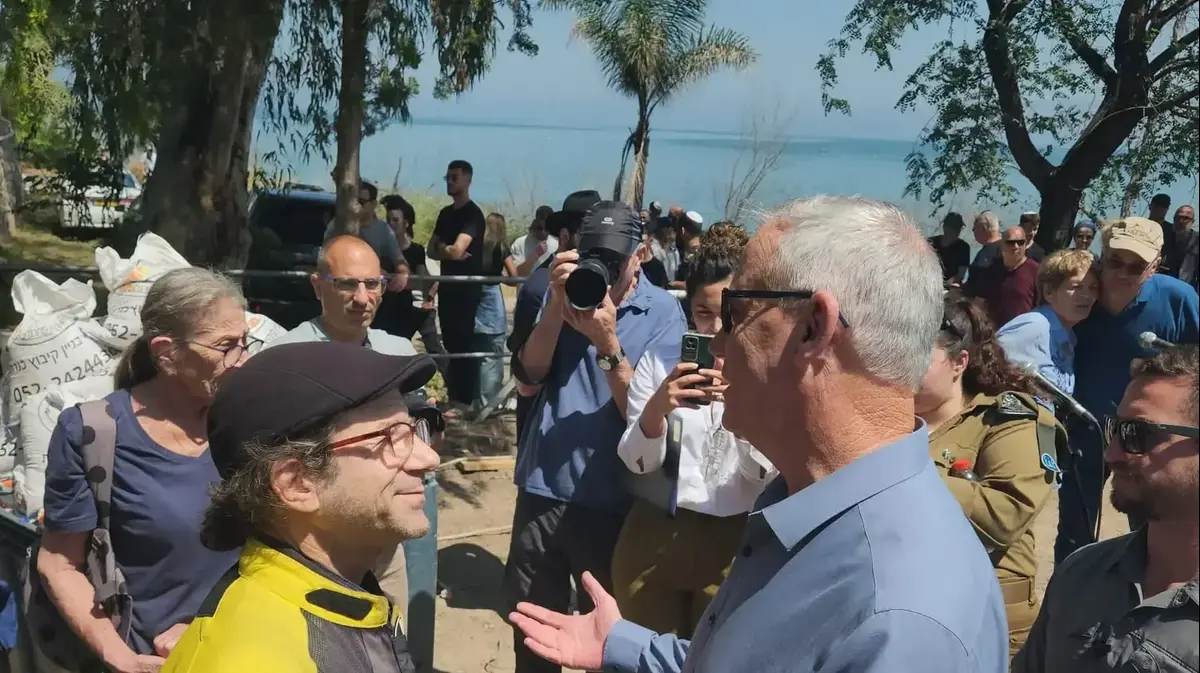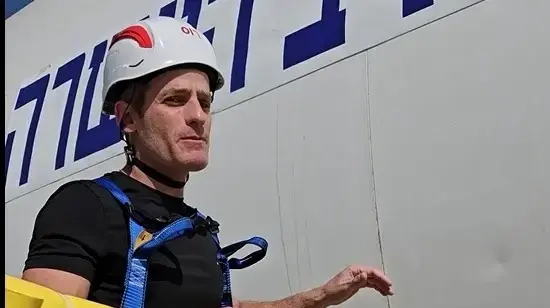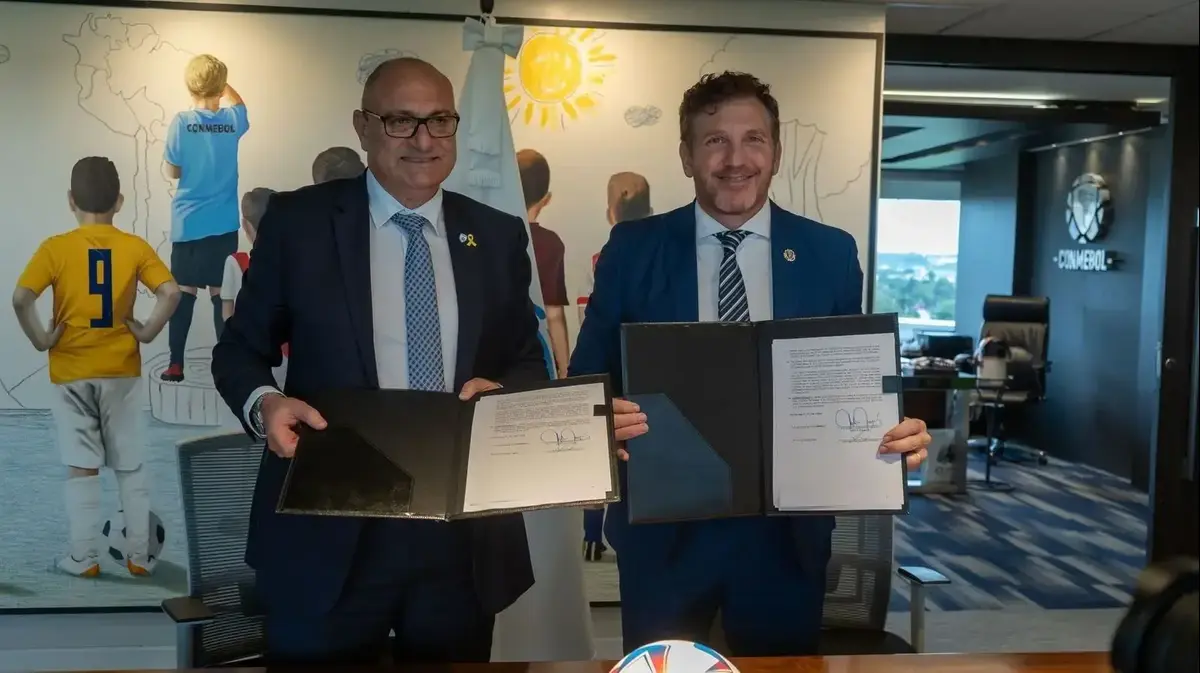Trailer for the movie "Soul Reckoning" (Katahdin Productions)
This coming September, the world will mark the seventieth anniversary of the reparations agreement, under which Germany transferred billions of marks to the State of Israel and the Jews of the Diaspora.
During this period, the Claims Conference was also established, which represented the survivors of the Holocaust abroad in negotiations with the German authorities.
She is active to this day, and as part of her activities she also produced a documentary called "Mental Account".
This docu presents the fascinating story behind the agreements, and was directed by Roberta Grossman - one of the leading documentary makers in everything related to the history of the Jewish people, who is responsible for, among other things, "Blessed the Match" about Hana Senesh and "Who Will Write Our Story" about the uprising in the Warsaw Ghetto.
Its local premiere will take place tomorrow (Wednesday) at a special event as part of the Jewish Film Festival in Jerusalem.
The payment agreement was recorded as one of the tumultuous moments in the country's history.
According to a survey published by "Maariv" at the time, eighty percent of the public opposed it.
And the protest was not quiet.
Crowds stormed the Knesset, and "Yediot Ahronoth" defined the sights as a "battlefield."
Hundreds of police officers were injured and several politicians as well, which did not prevent them from approving the signing of the agreement.
All this happened seventy years ago - that is, long before Facebook and Twitter and before the era of "poison machines", and one can only imagine what would have happened if there was social media these days.
"It was a disaster," says director Roberta Grossman in an interview with Walla!
Culture in preparation for the screening of the film in Israel.
"Even so, there was a storm of emotions around this story, and the social networks would have intensified it even more. A battle would have started as to who would shout louder on the networks, and those who were against the agreement would shout very loudly. I assume that the negotiations for the agreement would have collapsed at an early stage."
Combines archive footage, contemporary interviews and dramatization of historical events.
From "Soul Account" (Photo: Katahdin Productions)
Can you understand what motivated the Israeli government to move forward with the agreement, even though those who opposed it defined it as a deal with the devil and a moral disgrace, and of course you can understand them too?
"I can only repeat the words of historians I spoke with. Israel was on the verge of bankruptcy, and without the reparations agreements it would not have been able to restore its economic situation. German money had a huge impact on the Israeli market. I was in Israel in the seventies and eighties, and it was always ironic to see Mercedes cars made in Germany on its roads."
The initiative for the film came from the Claims Conference and the German government, and "Soul Calculation" is definitely positive towards these two.
"I knew nothing about the story, and precisely because I wanted to make the film, because the subject fascinated me and I was curious to learn about it," admits the director.
"It's quite an amazing thing: just seven years after World War II, representatives of the killers and the victims get into the same room and are able to overcome the hostility to reach an agreement that helped the Holocaust survivors and their families. So many problems these days seem insoluble, so it's inspiring to return to the story where the enemies sat opposite each other and produced something positive from it."
What was the biggest challenge for you in making the film?
"I worked with the German government on the one hand and with the Claims Conference on the other. The big challenge and subsequently my biggest achievement was getting them to integrate children and decide on one narrative. As you know, the way you tell the story is just as important as the story itself. There were many Obstacles on the way to finding the common narrative, although I admit that it was less challenging than I expected."
How much did the film challenge you personally and emotionally?
I guess it's not a great pleasure to make a film about the Holocaust.
"It's not a film about the Holocaust. It's a film about what happened after the Holocaust. I've made films about the Holocaust in the past and they were indeed difficult. 'Soul Reckoning' is actually one of my least challenging films. Either way, the personal challenge is nothing compared to the importance of the stories these".
More in Walla!
"My grandfathers would say 'You think you're a big shot because you're in a Spielberg movie? You're not!'
To the full article
"I had the privilege of speaking with Shimon Peres and Yitzhak Herzog as well."
Roberta Grossman (Photo: Katahdin Productions)
It can be said that the film has two heroes.
On one side of the barricade, Konrad Adenauer, who was the German chancellor at the time, and at least according to this document, saw the agreement as a moral necessity and did everything he could to push it through.
On the other hand, Nahum Goldman - the president of the World Jewish Congress who established the Claims Committee.
Although strict in its definition, "Mental Reckoning" uses dramatic reenactments and actors to illustrate the conversations between the two.
Usually, the cinema presents the Germans as talented athletes and the Jews as retarded, but here the opposite is happening.
Adenauer is presented as an unimpressive man and Goldman looks like a combination of Paul Newman and Robert Redford.
"Goldman was a lovely person," says Grossman.
"He was the classic European gentleman, and achieved many things thanks to his personal charm."
Goldman's character stars in the film, but does not star in high school history classes in Israel.
Can you understand why the Israeli narrative somewhat forgot about him?
"Maybe because he didn't fit the narrative, because he didn't immigrate. I previously directed a film called 'Over and Over', about Jewish-American pilots who came to Israel to fight in the War of Independence, and they were also erased from the Zionist narrative because they returned to America after the war."
The film features interviews with a number of senior historians, for example Prof. Ron Zweig, and you give them a lot of screen time.
It's nice to see a movie that gives so much respect to the Academy.
"I'm a bit 'old-fashioned'. I know that nowadays a lot of people are against the idea of 'talking heads,' but in my opinion researchers are the most fascinating people in the world. I make historical films, and the researchers I talk to have the ability to put things in context. They are my Wonderful stories - that's their job. All my films have interviews with academics. The pleasure is all mine."
The controversy that will never end.
From "Soul Account" (Photo: Katahdin Productions)
The film also shows your conversation with President Yitzhak Herzog.
I think this is his first appearance in an international documentary since entering the President's house.
"I previously interviewed Shimon Peres for another film, and now I had the opportunity to interview Herzog, and it is noteworthy for me that I had the opportunity to interview two different presidents on two different occasions. Herzog was very generous to me. He is an eloquent person who also has a lot of personal knowledge of the events because His family lineage."
On the other hand, the film almost completely ignores the character of Menachem Begin, who led the protest against the agreement.
Is this a political decision?
"The protest in Israel against the agreement is a huge story, of course, but the film focuses on the talks that led to the agreement and the story of the claims conference. There is a limit to how much material I could include in the film, and I had to find balances and decide what to give up."
Are you excited for the screening of the film in Israel?
"I'm curious about the reactions, because I know that the payment agreement was controversial at the time and is still controversial now."
"Soul Calculation" will be screened tomorrow (Wednesday 21.12) at the Jerusalem Cinematheque at 19:00 as part of the Jewish Film Festival.
Tickets can be purchased on the official website of the Cinematheque.
Next month, the film will also be screened on HOT 8.
culture
Theater
Cinema news
Tags
Yitzhak Herzog
Germany
holocaust
The Jewish Film Festival

